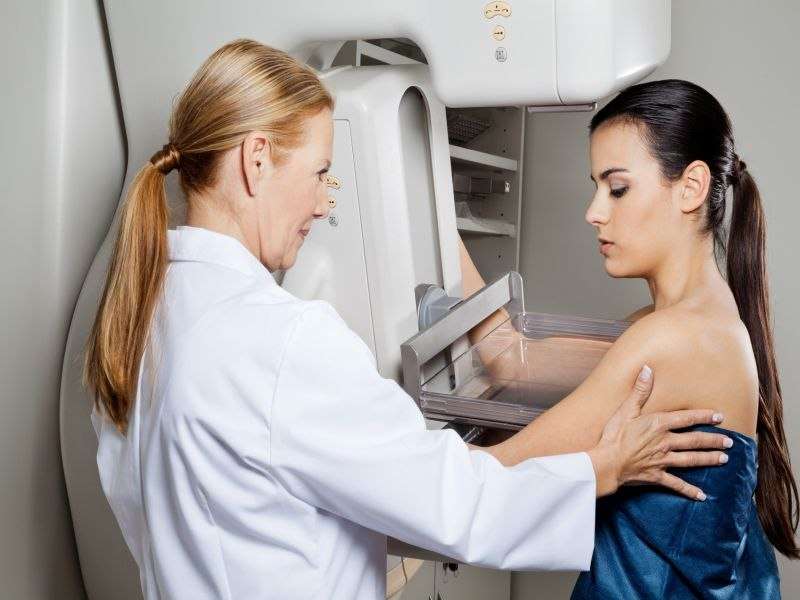Fibrous dysplasia associated with increased breast cancer risk

(HealthDay)—Patients with fibrous dysplasia (FD) are at increased risk for breast cancer, according to a study published online Aug. 30 in the Journal of Bone and Mineral Research.
Bas C.J. Majoor, M.D., from the Leiden University Medical Center in the Netherlands, and colleagues used hospital records from 134 female FD patients in the Netherlands and 121 in the United States to evaluate the potential relationship between breast cancer and FD.
The researchers found that 15 patients (six polyostotic and nine McCune-Albright syndrome) had breast cancer (87 percent thoracic localizations). Using the Dutch Pathology Registry, they validated a breast cancer incidence rate of 7.5 percent at a median age of 46 years (6.5 percent at 51 years). Compared with the Dutch general population, the breast cancer risk in the study participants was increased 3.4-fold; it was increased 13.2-fold in thoracic disease. The breast cancer incidence rate in the U.S. cohort was 4.5 percent at a median age of 36 years. Compared with the U.S. general population, the breast cancer risk in study subjects was increased 3.9-fold; it was increased 5.7-fold in thoracic disease. Four breast cancer specimens were positive for the GNAS mutation (44 percent).
"Risk of breast cancer is increased at a younger age, particularly in polyostotic FD, suggesting that screening for breast cancer should be considered in this particular group at a younger age than currently advocated by national guidelines," the authors write.
More information:
Abstract
Full Text (subscription or payment may be required)
Copyright © 2017 HealthDay. All rights reserved.

















